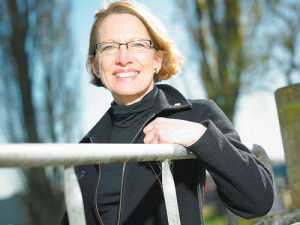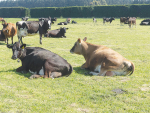OPINION: New Zealand food and fibre is different from those in other countries, yet not all consumers know this or are willing to pay a premium for it.
As the holiday season passes (some people in the rural sector wonder what the word ‘holiday’ actually means) the cities are returning to ‘business as usual’ -- which is no longer a feature of agriculture and horticulture.
New year resolutions about staying positive might be fading in the face of reality. So it is important to maintain a sense of perspective: the food and fibre we produce on the land in New Zealand meets the descriptors of what people say they want; the challenge is to market our product to gain the appropriate reward.
Sadly this has been a challenge for some time, so the question should be how do we improve the marketing? Do the marketers actually understand how we produce food and fibre, and that our systems are different from those in other countries?
Or is it simply that consumers aren’t being truthful when they say they will pay a premium for food that meets their requirements and matches their values?
The latter point is a problem in NZ. Up to 60% of pig products consumed here are produced overseas. The Pork Industry Board estimates that 95% of the imported meat doesn’t comply with NZ laws on the standard of farming.
Similarly, eggs from barns and free-range hens contribute less than a third of consumption: conventional cages are still almost 45% of the market, while colony cages are almost 25%. The issue for the consumer is still price.
For some consumers choice is also a matter of education: they simply don’t realise the background to what they are eating or wearing.
Social media should be able to make education simpler. But the facts are being outstripped by the fiction – magnified in the echo chamber that is Twitter, Facebook and all the other methods of instant communication.
Good news is that a ground swell of truth has started.
In its latest Feed4Thought survey, animal nutrition company Cargill found that twice as many Y-generation (18-34 years old) respondents in the US and China reported knowing a farmer in comparison with those over 55. Trends in Mexico and France were similar.
Young respondents in every country surveyed were more likely to have visited a farm than those over 55. This is despite the fact that, globally, there are fewer farms to know or visit today than there were a generation ago.
Gen-Y is also putting knowledge into action. Almost three times as many Gen-Y participants (52%) said they had changed their eating habits for sustainability reasons in the past year versus older US respondents (19%). Cargill also found that having children at home made participants in all four sample countries more likely to make values-based changes.
Chinese survey participants (59%) were the most open to paying a premium based on factors such as animal feed and housing; Americans (31%) the least.
The number one concern for all respondents to the Cargill survey is still food safety.
Add this information to the ‘hot trends’ identified by Eat Well Globally (a food industry communications agency) and New Zealand is poised to reap the benefits.
The trends are that food should be good for the consumer, ethically sourced and have minimal environmental impact (from production to packaging); taste remains the main motivator and verification of claims should be possible. In addition, authenticity (the production system is ‘what we do’ as Kiwis – grass fed) must be part of the story.
The true story.
New Zealand can do this. There is an increasing number of activities NZ-wide that will help, notably the Rabobank school leaders’ agri-camp, Young Farmer teachers’ days and Fonterra farms open days.
Together we can counteract the falsehoods and get to the premium markets. It will take collective action, but the foundation has been laid, which is a great way to start the new year.
• Dr Jacqueline Rowarth CNZM CRSNZ HFNZIAHS has a PhD in soil science and has been analysing agri-environment interaction for several decades.



















